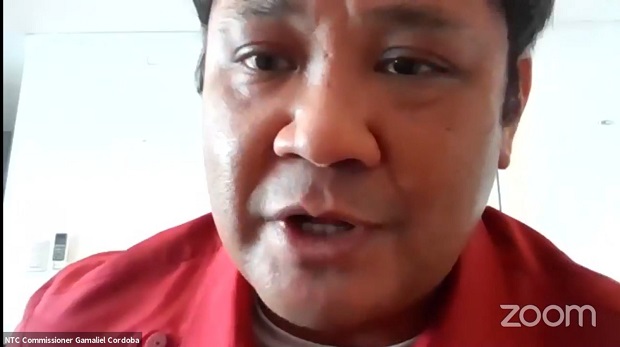At a virtual hearing conducted by the House ICT committee on Friday, Nov. 27, the National Telecommunications Commission (NTC) sought the help of Congress to require gated subdivisions to provide utility areas for telco infrastructure such as cell towers.

Local telcos Globe Telecom and Smart Communications have repeatedly complained that the dogged refusal of private villages to allow the installation of cell towers in their areas is one of the main reasons for the slow mobile Internet in major urban areas, particularly in Metro Manila.
Homeowners associations have invoked the supposedly harmful effects of cell sites in the health of residents. This claim, however, has been debunked by the Department of Health and the World Health Organization.
Forcing the subdivisions to open up is one of the strategies that NTC commissioner Gamaliel Cordoba discussed with the House panel in order to speed up the development of network infrastructure in the country.
The NTC is also asking assistance from Congress for the following:
- Increase of the DICT budget for the National Broadband Program;
- Remove 60-40 nationality requirement;
- Mandate telco-ready buildings;
- Increase the penalty that NTC can impose; and
- Pass into law the Open Access Bill
In his presentation, Cordoba underscored the fact that unlike the rest of the world that mainly rolled out telecom infrastructure for voice service, the Philippines took texting as the main application during the early years of cellular technology in the country. He said this technology did not require construction of many towers until the era of the smartphone began in 2012.
Seeing the revenue potential from texting, he said local government units (LGUs) came up with so many permits and recurring annual fees for revenue regulation. Cordoba said the red tape and its costs were then felt as telcos started overhauling their network for 3G and 4G.
He said adding towers also got mired in red tape starting in 2013. But despite these problems, Cordoba said from 2016 to the present, the Internet speed for both fixed and mobile broadband posted improvements – although not just as pronounced as in other countries.
Cordoba said Internet connectivity was noticeably stable throughout the country during the Covid-19 crisis – from gaming to video streaming, video conferencing, online banking, work-from-home connectivity and commercial transactions. Although problems occurred when online learning started, he said these were subsequently addressed.
Cordoba said Dito Telecommunity’s expected commercial launch in March 2021 could also contribute significantly to the improvement of mobile Internet speed in the Philippines.
Also during the hearing, Quirino representative Junie Cua recommended that telcos should take advantage of the provision under the Bayanihan 2 Law which provides for the temporary suspension of requirements to secure permits and clearances for the construction of telecommunications and infrastructure for a period of three years.
House ICT chair Victor Yap said the panel would set another hearing to tackle concerns affecting the telecommunications services such as connectivity, the failure of local telcos to deliver their expected services to their customers, inadequacy of network infrastructures, and spectrum fees and management, among others.




